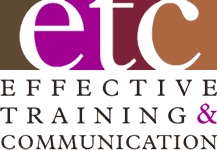A reader recently asked how to determine which networking events to attend. That can be a real challenge for busy entrepreneurs or sales professionals. You could easily invest a huge amount of time and money attending different networking-oriented breakfast, lunch and dinner/after hours events every workday, not to mention all the weight you’d gain. So, I turned a summary of our conversation into these 10 Best Practices for how to choose which networking events to attend.
1. Start with the ‘why’! The process starts with precisely defining one or more specific networking objectives. Why will you be networking? John Naisbitt defined networking in ‘Megatrends’ over 30 years ago as the ‘exchange of ideas, information or resources.’ So, what kind of information are you seeking? Information to help you do your job easier, faster, better or smarter? Information to help you grow your business? Even information to support a job search? All the other networking event decisions stem from answering these ‘why’ questions first.
2. The ‘why’ determines the ‘who’. Now that you know what kind of information you’re looking for, what kinds of people do you need to talk with to help you accomplish your specific objective? If you already know them, then you move on to Level II strategies – ‘Networking with Colleagues’ – and give them a call or send an email with your specific questions. And … you can skip the rest of this article.
3. If you only know who they are by title, function or employer, like marketing decision-makers or business owners, then you’re at Level I – ‘Networking with Strangers’.
4. The ‘who’ drives the ‘where’. Now that you know the kinds of people you’d like to talk with, where can you find large numbers of them in the same place at the same time gathered there for similar purposes? What would be effective and efficient ‘platforms’ for your networking? Obviously, any local networking-oriented event would be a great starting point. So would any professional group seminar or workshop that’s likely to attract the kind of people you want to meet and network with. So are local industry or profession-focused association breakfast, lunch or dinner meetings. And on … and on.
5. An important concept here is that you don’t necessarily choose a seminar or association event because of your interest in the topic. If you’re primary purpose is networking, choose it because of who is interested in the topic and how interested you are in meeting them. Go for the networking. Stay for the presentation.
6. Beyond this reflective analytical process, you can also network with your colleagues to find out effective platforms for your networking objectives. Ask specific questions, such as ‘I want to network with senior marketing professionals who can tell me about good CRM software options. Would the local chamber or COSE events be worthwhile? Any other good networking platforms you can recommend for this purpose?’
7. If you don’t know much about the group or event, also talk with association leaders or event coordinators. Find out how many people typically attend their event and how many of them might meet your targeted profile. The more people at a given event that you should meet, the better your chances of accomplishing your networking informational objective.
8. Choose your events wisely. You only have so much time and money to invest in the process. Borrowing from Thomas Jefferson, ‘The real problem about going to a bad networking event is that you could have gone to a good one instead.’
9. Although this discussion focuses on networking at events, let’s not forget networking on line. If you belong to some LinkedIn groups that might relate to the information you’re seeking, you can easily post a question on that group’s discussion board. A natural question would be ‘What professional groups in (area) have you found to be effective for networking on (topic)?’ To further encourage replies, considering offering to post a summary of the input you do get all members can benefit from your research.
10 You can also pose the same question to your LinkedIn Network. But, let me caution you against a blanket email request for information. That would look like junk mail to most people and border on abusing your network. Better to scan your network, identify those people who might likely relate to your topic and send them individualized notes. While that method would take a lot more time, your results would be a lot better. That’s how the pros use LinkedIn as a networking tool.
So, there you have 10 Best Practices for dealing with ‘so many events, so little time.’ Start with the ‘what’ and take it from there. But, do choose wisely!

